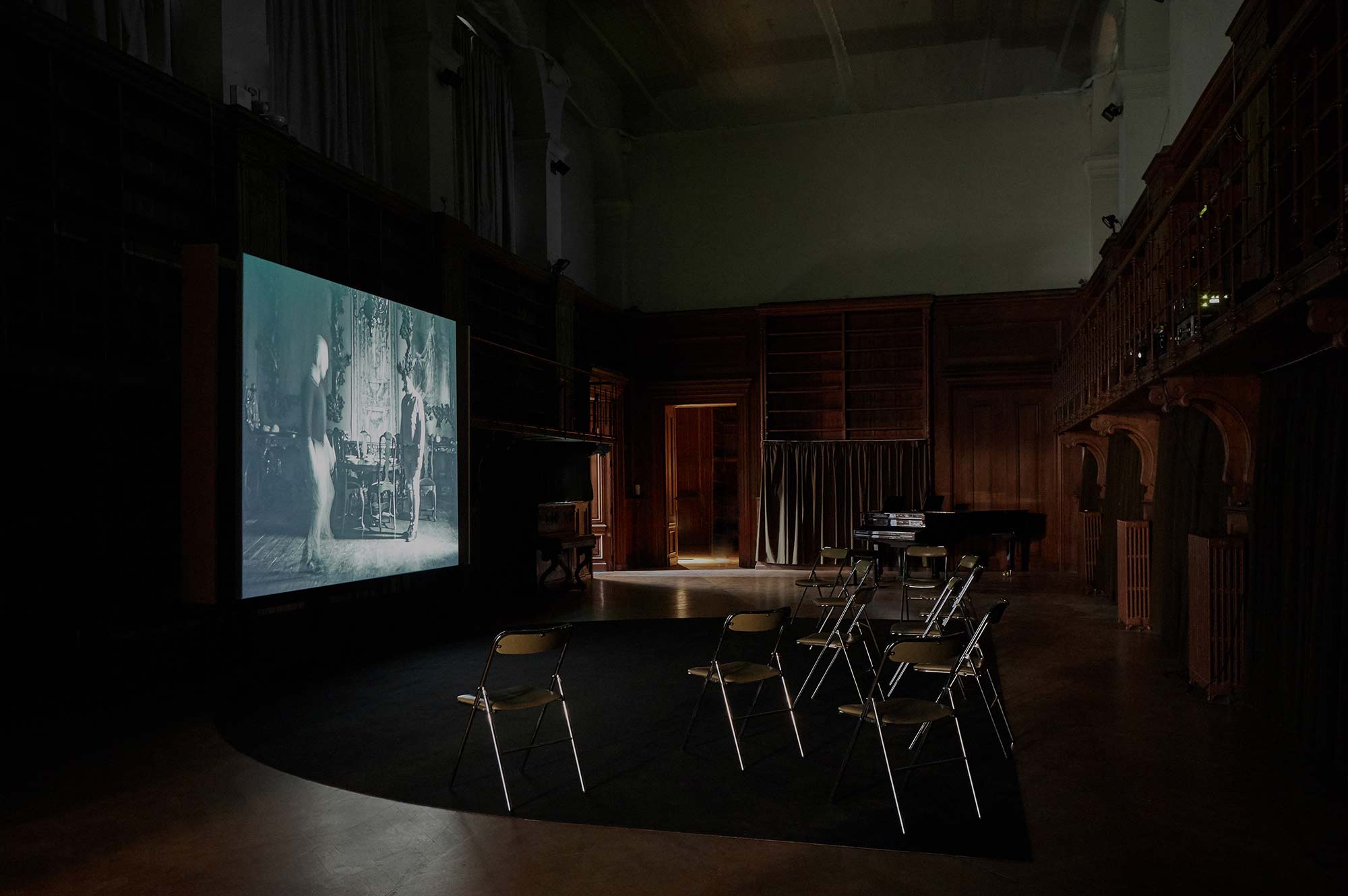Bárbara Wagner (b. 1980, BR) and Benjamin de Burca’s (b.1975, DE) films develop through collaborations with the performers in them, often resulting in genre-defying musicals. Fiction and documentary hybridise, establishing a third language territory. Their works celebrate and reframe vernacular cultural forms as they have manifested over time. They examine the adaptation of past cultural forms in response to changing economic conditions— particularly in emerging economies or post-colonial geographies— and the diasporic re-fashioning of popular genres.
The artists have developed a subtle system of pointing that reveals rather than classifies. In the space between what is staged and actually happening, their subjects’ gendered, racialised and socio-economic contexts emerge. Here, the protagonists perform self-generated strategies of visibility and subversion that synthesise pop culture, high art and tradition.
Bárbara Wagner & Benjamin de Burca, ONE HUNDRED STEPS, 2020
Video, on loop, 2K, B/W + Colour, Sound
30′
Co-Commissioned by Manifesta 13 Marseille and Visual Carlow
Produced by VOLTE and Wagner & de Burca
Co-financed by the Arts Council of Ireland, Bundesregierung für Kultur und Medien (BKM), Medienboard Berlin Brandenburg, V-A-C Foundation and Ammodo
Courtesy of the artists and Fortes D’Aloia & Gabriel, São Paulo and Rio de Janeiro
The eighth audio-visual collaboration of Bárbara Wagner and Benjamin de Burca references the work of Bob Quinn, the Irish filmmaker whose productions in the 1980’s (specifically Atlantean, a quartet of documentary films and accompanying book) were dedicated to deconstructing the hegemonic Eurocentric imaginary and elaborating on the role that North African cultures have played in the formation of Irish culture. Through an anti-colonialist approach, Quinn’s work remains an important historical document which is more relevant today than ever before.
Wagner & de Burca’s film invites the viewer to enter its narrative through two distinct and seemingly mirrored chapters. The first is set at a sumptuous 17th century Anglo-Irish colonial manor of the landlord class, located in southwest Ireland, and the latter at a 19th century stately mansion built by a bourgeois French family, located in the centre of Marseille. Each of these houses carries the weighted atmosphere of its privileged history in their architecture and décor – a history now preserved, as both have become museums open to the public.
As in other films of the duo, ONE HUNDRED STEPS unfolds through a hybrid language between documentary and fiction. Here, the visitors to these museums reveal themselves to be performers. Their musical performances act as ephemeral occupations of these loaded settings, denying a simplified binary relationship between the European and the Other, pivoting the power relations of who is doing the telling and who must listen. It is in this third territory in which Wagner & Burca’s narrative is established, wherein the voices and bodies of these artists forge new imaginations around these historical narratives
* Work conceived for the occasion of Manifesta 13 Marseille










 ONE HUNDRED STEPS, 2020 © Bárbara Wagner & Benjamin de Burca. Photo ©Jeanchristophe Lett /Manifesta 13 Marseille
ONE HUNDRED STEPS, 2020 © Bárbara Wagner & Benjamin de Burca. Photo ©Jeanchristophe Lett /Manifesta 13 Marseille